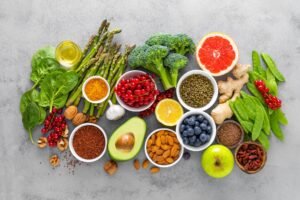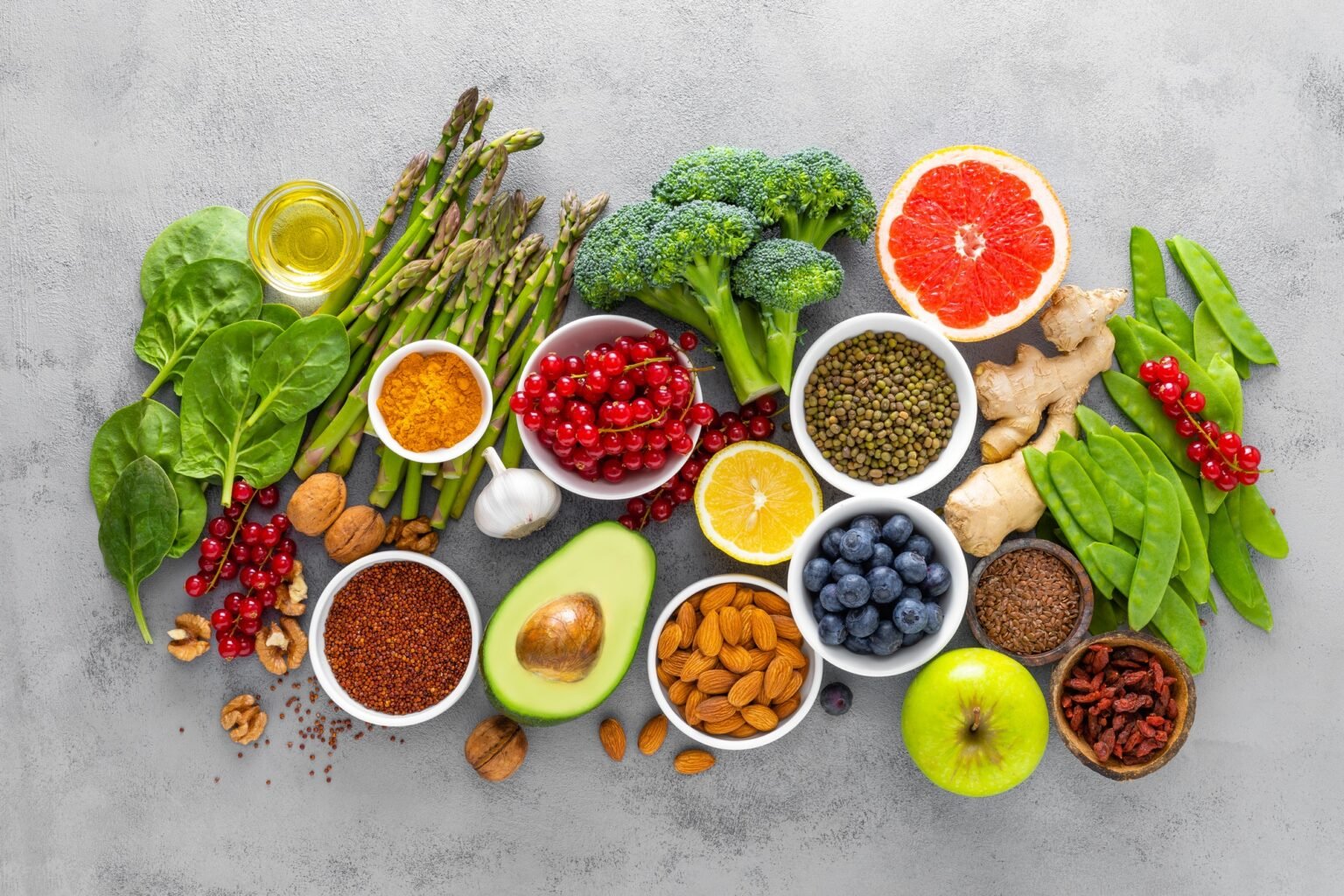When it comes to eating well, it’s not just about staying full—it’s about fueling your body with the right nutrients. Eating super healthy foods can transform your health, energy levels, and even your mood. But with so many options, where do you start? Let’s break it down.
What Makes a Food “Super Healthy”?
A “super healthy” food is one that’s packed with nutrients, antioxidants, vitamins, and minerals while being low in empty calories. Think of these foods as your body’s VIP guests—they bring the best gifts (nutrients) to the party!
Why Focus on Healthy Eating?
Healthy eating isn’t just about losing weight. It’s about improving your heart health, boosting your immune system, and even enhancing your skin. In short, healthy foods are the building blocks for a happier, healthier you.
Super Healthy Fruits
Berries (Blueberries, Strawberries, etc.)
Berries are small but mighty. They’re loaded with antioxidants that fight free radicals in your body. Blueberries, for instance, are often called “brain food” because they boost cognitive function.
Citrus Fruits (Oranges, Lemons, etc.)
These zesty fruits are Vitamin C powerhouses, perfect for keeping colds at bay. Try starting your day with a glass of lemon water—it’s refreshing and detoxifying!
Nutrient-Packed Vegetables
Leafy Greens (Spinach, Kale, etc.)
Leafy greens like spinach and kale are full of iron, calcium, and fiber. Add them to your salads or smoothies for a nutrient boost.
Cruciferous Veggies (Broccoli, Cauliflower, etc.)
Broccoli and cauliflower are low in calories but rich in vitamins. Steam them lightly to retain their nutrients and enjoy their crunchy goodness.
Protein-Powered Foods
Lean Meats and Poultry
Chicken and turkey are great sources of lean protein, essential for muscle growth. Grill or bake them for a healthier option.
Plant-Based Proteins (Lentils, Chickpeas, etc.)
Lentils and chickpeas are not just for vegetarians. They’re packed with fiber and protein, making them an excellent meat alternative.
Dried Fruits Without Added Sugar
Look for unsweetened options like dried apricots or figs for a naturally sweet treat.
Chia Seeds and Flaxseeds
Tiny but powerful, these seeds are rich in omega-3s and fiber. Sprinkle them on yogurt or oatmeal for a healthy twist.
Omega-3 Rich Foods
Fatty Fish (Salmon, Mackerel, etc.)
Fatty fish like salmon and mackerel are incredible for brain and heart health. Bake or grill them with a squeeze of lemon for a quick meal.
Plant-Based Sources (Algae Oil, Walnuts, etc.)
If fish isn’t your thing, go for plant-based omega-3 sources like algae oil and walnuts.
Whole Grains for Sustained Energy
Quinoa and Farro
These grains are gluten-free and full of protein. Quinoa, in particular, is a complete protein, meaning it contains all nine essential amino acids.
Oats and Brown Rice
Oats are fantastic for breakfast, while brown rice is a great base for stir-fries and curries.
Fermented Foods for Gut Health
Yogurt and Kefir
Rich in probiotics, yogurt and kefir are excellent for gut health. Choose unsweetened varieties to avoid added sugars.
Kimchi and Sauerkraut
These tangy, fermented foods are loaded with good bacteria to aid digestion.
Sweet Yet Healthy Snacks
Dark Chocolate
Who says healthy can’t be delicious? Dark chocolate (70% cacao or more) is rich in antioxidants.
Dried Fruits Without Added Sugar
Look for unsweetened options like dried apricots or figs for a naturally sweet treat.
Conclusion
Adding these 50 super healthy foods to your diet doesn’t mean a total kitchen overhaul. Start small, experiment with new recipes, and enjoy the journey to better health. These foods are delicious, nutrient-packed, and easy to incorporate into your meals.
FAQs
- What are the top five healthiest foods to eat daily?
Blueberries, spinach, salmon, almonds, and quinoa are excellent daily picks. - Can you overeat healthy foods?
Yes, portion control matters, even with nutrient-rich foods! - What are some budget-friendly superfoods?
Lentils, oats, bananas, and canned tuna are affordable and nutritious. - How can I make healthy eating a habit?
Plan meals ahead, stock up on healthy snacks, and experiment with recipes. - Are organic foods healthier than non-organic?
Organic foods can be lower in pesticides but aren’t necessarily more nutritious. Choose what fits your budget.



2 Comments
Thanks, the content in the article is very informative
The blog has excellent potential to become a go-to guide for health enthusiasts. With a few enhancements in detail, accessibility, and interactivity, it can cater to a broader audience while providing substantial value.